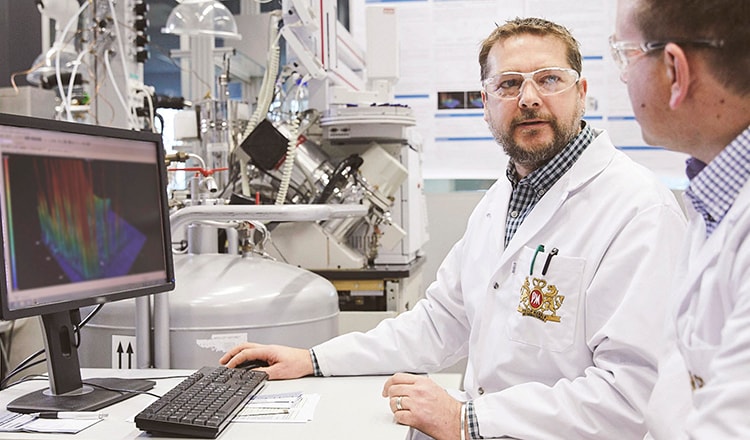Imagine a future—a near future—when cigarettes are obsolete.
Demand for cigarettes will have dried up. Some smokers will have quit—the best choice anyone can make. Others will have switched to a far less harmful smoke-free alternative—to their benefit and the benefit of public health.
This future is more than a possibility. It’s within reach. And my company is helping to achieve it. Our mission at Philip Morris International is to reduce smoking by replacing cigarettes with the better alternatives that innovation, science—and a lot of investment—have made available.
Remarkably however, the faster I move out of cigarettes, the more pushback I get.
To give an example of what I mean by this: The reason why I am presenting to you on this platform is because my company has been canceled this week from a long-standing planned speech on the sidelines of the United Nations General Assembly.
It seems that certain interest groups cannot accept us working to accelerate the end of cigarettes. Even worse, they do everything in their power to silence any debate about how to get to this future faster.
But by excluding us and bullying others from engaging with us, they are effectively delaying progress for the men and women who smoke today.
For decades, governments and organizations have rightly done everything they could think of to discourage people from smoking and to encourage those who do smoke, to quit. Restrictive regulations. Steep prices. Marketing bans. Public health campaigns.
And yet despite the known health risks, worldwide, more than one billion people still smoke today.
We can change that.
The persistence of high smoking rates globally is evidence that the current approach to ending cigarette use is not working quickly enough.
The most common response to the problem can no longer be more of the same.
It’s time to try something else. To try a more inclusive and innovative approach; one that has been put into practice in several countries around the world and that has the potential to significantly accelerate an end to cigarettes.
Better alternatives to cigarettes now exist. And scientific data show their potential to be less harmful than continuing to smoke the cigarettes sold worldwide. What’s needed now is for the various stakeholders—governments, the public health community, industry, and civil society—to do their part to get these better alternatives in the hands of adult smokers who do not quit.
But here comes the problem.
Not everyone is doing all that they could.
Instead of implementing policies to promote adult smokers’ access to these better products, many global regulators are defaulting to inaction.
Some public health commentators blindly dismiss the potential these products represent for smokers without objectively assessing the science.

“The faster PMI moves away from cigarettes, the more we’re being silenced”
And anti-tobacco organizations? Many of them appear far more focused on ending the industry than on ending cigarettes.
Today’s environment and rhetoric make it easier for governments and regulators to do nothing on smoke-free alternatives. It’s perceived as safer for political careers to abstain from the debate completely rather than be seen as siding with us.
But, in the end, this is just prolonging the life of cigarettes and risks shortening the lives of those who use them.
For smokers today, inaction is not a neutral position. It is a choice with real-world outcomes.
We are entering what Winston Churchill called “a period of consequences.”
It is no longer a case of if smoke-free alternatives are better than cigarette smoking; it is a case of by how much.
Using the World Health Organization’s data, estimates, and methods, along with other third party data, we’ve calculated the potential positive public health impact of the world’s smokers switching from cigarettes to less harmful, smoke-free products.
The results are really eye-opening.
Our hypothetical model shows that if smoke-free products are assumed to be 80 percent less risky than cigarettes—and if people who currently smoke were to switch to them completely—then over their lifetime, there’s a potential for a tenfold reduction in smoking-attributable deaths compared with historical tobacco control measures alone.
Let me repeat that: Based on the WHO’s own data, we see the real potential for a tenfold reduction in smoking-attributable deaths if smokers fully switched to smoke-free products. And this positive impact could be even greater when combined with traditional measures to discourage people from starting smoking and which encourage those who do to quit.
While there are limitations to this kind of hypothetical analysis, this estimate begins to show the real impact of inaction. The human impact.
But this is not just a hypothetical situation.
Look at public health data in Sweden, a country that today boasts one of the developed world’s lowest smoking rates, at around five percent.
There, snus—a noncombustible form of moist tobacco that is placed between the lip and gums—is the most commonly used alternative to cigarettes.
According to these data, male mortality rates due to tobacco use in Sweden are much, much lower than in EU countries, where snus is banned.
The Swedish Snus Commission, estimates that more than 350,000 smoking-attributable deaths among men could have been avoided each year if the other EU countries had matched Sweden’s tobacco-related mortality rate.
We can also look at Japan, where just five years after heated tobacco products were introduced in 2014, independent studies showed an unprecedented decline in cigarette sales in the country.
The U.K., which has adopted smoke-free products to help adults abandon cigarettes, has also seen smoking rates plunge.
Meanwhile, in countries that ban or severely restrict smoke-free products, such as Australia, Turkey, Singapore and others, smoking rates have been declining at a much slower pace, and worse—in some cases—have been increasing instead.
Despite mounting evidence regarding the potential benefits of alternative products like nicotine pouches, heated tobacco, or vapes, too many governments have adopted a policy of obstruction or inaction. Inexplicably, there are countries where smokers can easily access cigarettes—the most harmful forms of nicotine consumption—but not smoke-free alternatives.
It’s time to get real.
© Getty Images.
In whatever field, innovations become advancements when they address existing issues and offer improvements.
Smoke-free products are no different. Decades ago, our industry was challenged to make cigarettes less harmful. We’ve gone one better—creating science-based alternatives that could eliminate cigarettes completely as they remove from the equation the most harmful aspect of smoking: Combustion. Smoke-free products do not burn. It’s in their name. And so, compared to cigarettes, they can significantly reduce the vast majority of the harmful constituents that lead to smoking-related death and disease. Of course, they contain nicotine which is addictive, and they’re not risk-free, but wouldn’t it be better to offer adults who don’t quit the choice to switch to these innovative products rather than continuing to smoke?
This is an amazing innovation—and a potentially huge public health breakthrough. Isn’t that what everyone wanted? To put an end to cigarettes?
It’s certainly what I want. A future in which cigarettes—like pocket watches, videocassettes, and paper maps—are relegated to museums. Out-of-fashion, outdated … artifacts of our past.
Naturally, I’m sure some of you are thinking: If this man is so strongly opposed to cigarettes, why doesn’t he just stop making them?
If PMI were to cease operations tomorrow, our most ardent critics would rejoice. No doubt about that.
But how would this resolve the issue of smoking? Would our customers simply stop purchasing cigarettes? Of course not. They would switch to other brands—or worse, turn to the illegal market. And any leverage we have with adult smokers—any ability to persuade them to switch to better products—would be lost.
And so, we are staying the course: helping adults who would otherwise continue to smoke, switch to better, smoke-free products, while simultaneously reducing cigarette sales—until the day when the last cigarette production line is shut down.
But let me tell you, that day is coming sooner than you may think.
Since 2008, we have invested more than 10.5 billion U.S. dollars in developing and commercializing smoke-free products. Already, they account for more than a third of our total net revenues. That’s up from zero percent in 2015. We are committed to becoming a majority smoke-free company sooner rather than later.
While some amount of skepticism toward our industry is to be expected, we cannot allow falsehoods and outdated biases to impede a better future for smokers and public health.
We cannot allow those who shout for more of the same to distract us from the experts who call for a new approach to end smoking faster, based on innovation and science.
We have an opportunity to make cigarettes obsolete in our lifetime. We cannot afford to forestall progress any longer. Smokers, least of all. Their voices, needs, and aspirations must be central to the strategies and policies we craft to create a better future.
Society expects nothing less. In fact, a significant majority of citizens around the world—more than 7 in 10, according to an independently conducted survey we commissioned—would support their government enacting policies that encourage adult smokers to switch to better alternatives.
My question is: Will governments that ban these products or treat them like cigarettes take responsibility for the consequences?
Will society stand up and call out the organizations that are blocking progress?
Or will this insanity persist—leaving us with more of the same and millions of people needlessly continuing to smoke?
It is time for more countries to follow the lead of Sweden, Japan, and other countries such as the U.K. and the U.S.
It’s time for anti-tobacco organizations to stop fighting against us and start fighting for adults who smoke. Just imagine the impact of a potential 10-fold further reduction if all current adult smokers were to fully switch for the remainder of their lives to smoke-free products, compared with historical measures alone.
It’s time to work toward a common goal of delivering effective policies that make cigarettes a historical artifact, a museum piece collecting dust behind glass cases.
We need to remember that not taking an evidence-based decision on smoke-free products today is a decision with consequences.
Too much time has been wasted. Let’s get this done.
Thank you.








